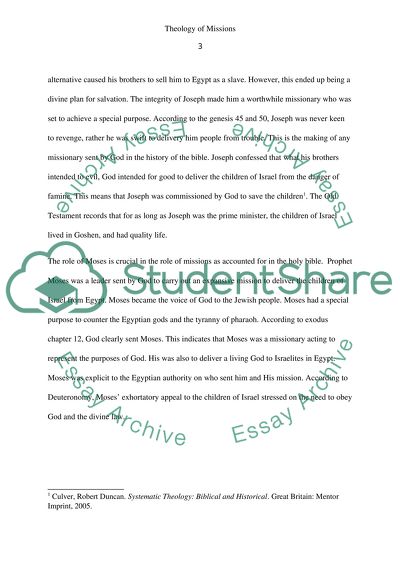Cite this document
(“Theology of Missions Research Paper Example | Topics and Well Written Essays - 1500 words”, n.d.)
Retrieved from https://studentshare.org/religion-and-theology/1467405-theology-of-missions
Retrieved from https://studentshare.org/religion-and-theology/1467405-theology-of-missions
(Theology of Missions Research Paper Example | Topics and Well Written Essays - 1500 Words)
https://studentshare.org/religion-and-theology/1467405-theology-of-missions.
https://studentshare.org/religion-and-theology/1467405-theology-of-missions.
“Theology of Missions Research Paper Example | Topics and Well Written Essays - 1500 Words”, n.d. https://studentshare.org/religion-and-theology/1467405-theology-of-missions.


